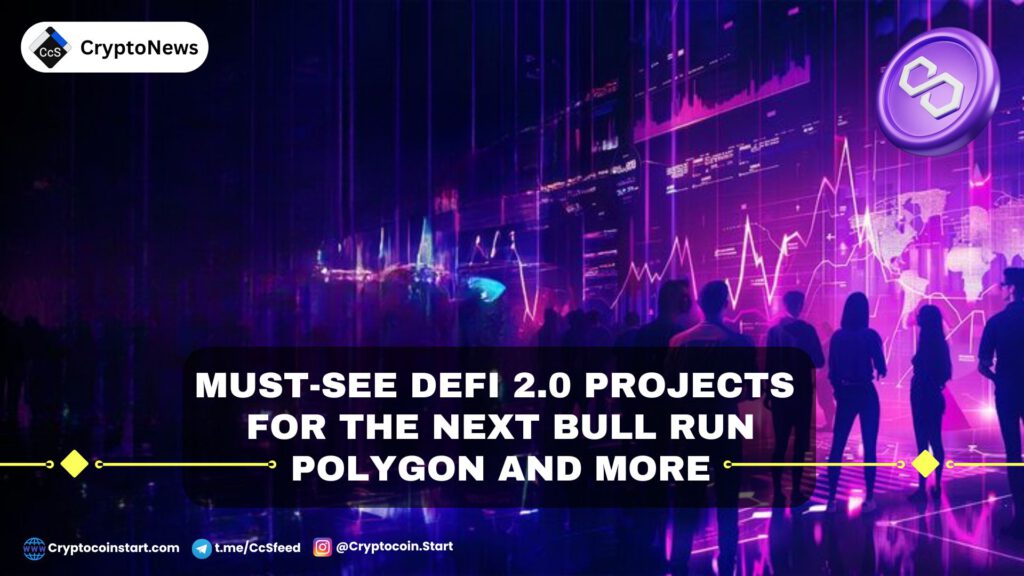
Introduction to DeFi 2.0
The decentralized finance (DeFi) landscape is rapidly evolving, with leading platforms like Uniswap, Arbitrum, Polygon, Lido DAO, and Chainlink paving the way for innovation. These projects enhance efficiency, security, and user control, transforming crypto trading and governance. This article explores these top DeFi platforms and their contributions to the growth and accessibility of DeFi.
Uniswap (UNI): Driving Efficiency in DeFi Trading
Current Price: $7.32
Market Cap: $4.39B
Uniswap is a decentralized trading platform that launched in November 2018. Utilizing an automated market maker (AMM) model, it allows users to swap tokens without the need for a traditional order book system. This innovation addresses issues such as low liquidity that often plague decentralized exchanges.
- Token Governance: In September 2020, Uniswap introduced its governance token, UNI, enabling users to participate in the decision-making process regarding the platform’s future.
- Community Engagement: The UNI token enhances user engagement and aligns community interests with the protocol’s development.
Arbitrum (ARB): Enhancing Ethereum’s Scalability
Current Price: $0.5641
Market Cap: $2.04B
Arbitrum is an Optimistic Rollup and layer-2 solution built on Ethereum, designed to accelerate transactions while reducing costs. It efficiently handles computations from the Ethereum blockchain and relies on it for security.
- Governance Token: The native token, ARB, serves as a governance token for the Arbitrum DAO, allowing holders to vote on crucial proposals.
- New Developments: In 2023, Arbitrum launched Orbit, a layer-three product aimed at attracting developers and expanding the ecosystem.
Polygon (MATIC): Multi-Chain Vision Gains Traction
Current Price: $0.3708
Market Cap: $992.4M
Polygon is renowned for its layer-two scaling solutions that enhance Ethereum’s usability. It is a user-friendly sidechain solution that supports various applications, including optimistic rollups and standalone chains.
- Multi-Chain Network: Polygon’s framework enables Ethereum to evolve into a multi-chain network, improving scalability and performance while maintaining security.
- MATIC Token: The $MATIC token plays a crucial role in providing security and governance rights within the ecosystem, attracting numerous decentralized applications.
Lido DAO: Liquid Staking Solutions
Current Price: $1.13
Market Cap: $1.01B
Lido DAO is a decentralized self-governing entity focused on staking solutions for Ethereum. It offers a liquid staking service, allowing users to deposit ETH in exchange for stETH (Lido Staked ETH) tokens.
- Liquidity and Staking Returns: With stETH, users can enjoy liquidity while earning staking rewards, maximizing their Ethereum assets.
- Governance Rights: The LDO token grants holders voting rights on significant decisions within the Lido ecosystem, ensuring community participation.
Chainlink (LINK): Bridging Blockchain with Real-World Data
Current Price: $11.39
Market Cap: $7.14B
Chainlink is a decentralized oracle solution that connects blockchain systems with off-chain data, enabling smart contracts to access real-time information. Since its inception in 2017, Chainlink has been instrumental in enhancing the reliability of smart contracts.
- Data Providers: The LINK token incentivizes data providers and node operators, ensuring the network’s decentralization and security.
- Smart Contract Growth: By facilitating communication between smart contracts and real-world data, Chainlink supports blockchain growth and innovation.
Conclusion
The DeFi 2.0 landscape is being reshaped by innovative platforms like Uniswap, Arbitrum, Polygon, Lido DAO, and Chainlink. These projects enhance trading efficiency, scalability, and user governance, making DeFi more accessible to a broader audience. As the DeFi sector continues to evolve, these platforms are well-positioned to lead the charge in transforming the future of finance.

